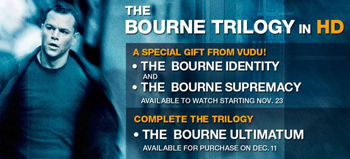 Three recent posts on the Web discuss the coming of the Mobile Web. One thing we can all agree on: It’s a big deal. What we don’t agree on is this: When will it get here, and will it be what we as consumers need?
Three recent posts on the Web discuss the coming of the Mobile Web. One thing we can all agree on: It’s a big deal. What we don’t agree on is this: When will it get here, and will it be what we as consumers need?
The Register recently conducted a poll of its readers with more than half believing that “always-on mobile Internet access” will become “fundamental” to how they work. Recognizing that its poll is skewed — techies read the “publication”, not my insurance-salesman neighbor — The Register nonetheless rightly notes that once availability, accessibility, traffic structures, hardware, and other issues are sorted out the Mobile Web will finally arrive.
“When the technology passes the always-on threshold,” The Register writes, “you can expect people to use it with impunity.”
Which brings me to my second bit of news.
Continue reading »
 The online video landscape has changed dramatically since the
The online video landscape has changed dramatically since the  Pitched by the company as an AppleTV alternative,
Pitched by the company as an AppleTV alternative,  Microsoft’s Xbox Live has come a long way since it launched in November of 2002. Xbox Live started out as a multiplayer gaming network, but today the 8 million users with Live accounts do much more than just play games. Users can download movies and television shows, chat with friends, and more. Even Microsoft now describes the service as a “comprehensive unified online entertainment network”. Marketing-speak at its finest, but it’s true – Xbox Live is a key component of Microsoft’s connected entertainment vision. In this post we look at the state of Xbox Live today, and explore some of the ways Microsoft will likely enhance it in the future.
Microsoft’s Xbox Live has come a long way since it launched in November of 2002. Xbox Live started out as a multiplayer gaming network, but today the 8 million users with Live accounts do much more than just play games. Users can download movies and television shows, chat with friends, and more. Even Microsoft now describes the service as a “comprehensive unified online entertainment network”. Marketing-speak at its finest, but it’s true – Xbox Live is a key component of Microsoft’s connected entertainment vision. In this post we look at the state of Xbox Live today, and explore some of the ways Microsoft will likely enhance it in the future.  Now this would be one heck of an early present: The
Now this would be one heck of an early present: The  You got to give
You got to give 
 Several years ago I worked on a research project for a major U.S. newspaper. One outcome was this: not everybody wanted to pay for the whole paper. They’d rather spend a quarter for Sports than 50 cents for everything.
Several years ago I worked on a research project for a major U.S. newspaper. One outcome was this: not everybody wanted to pay for the whole paper. They’d rather spend a quarter for Sports than 50 cents for everything.